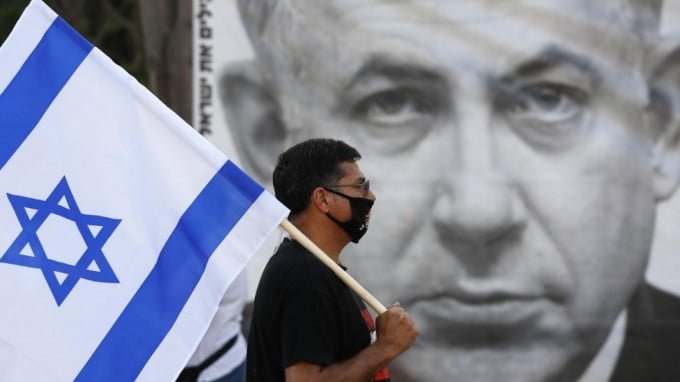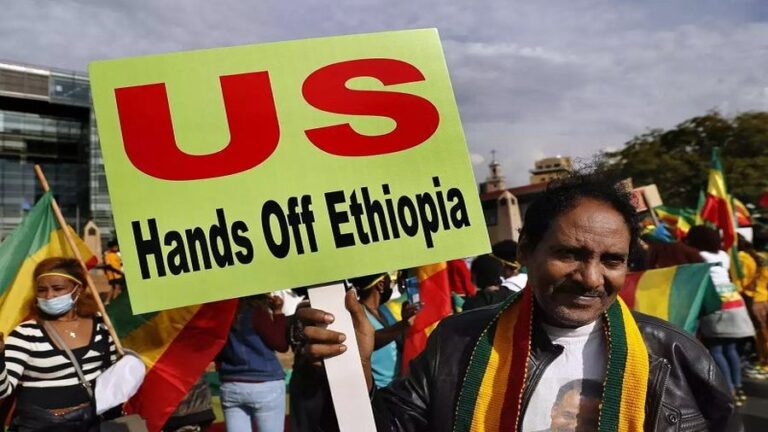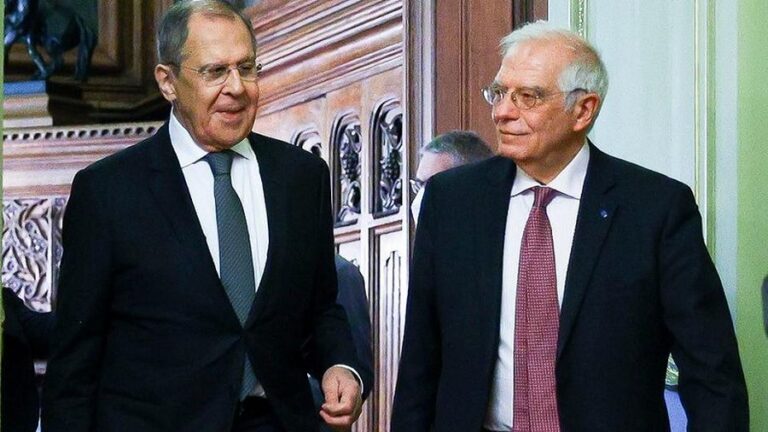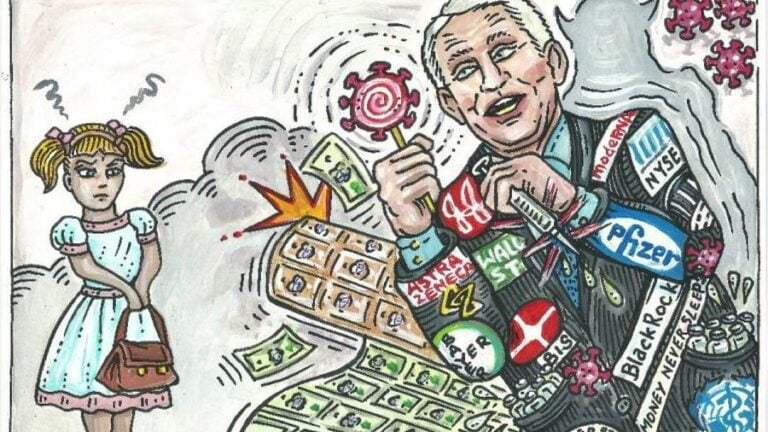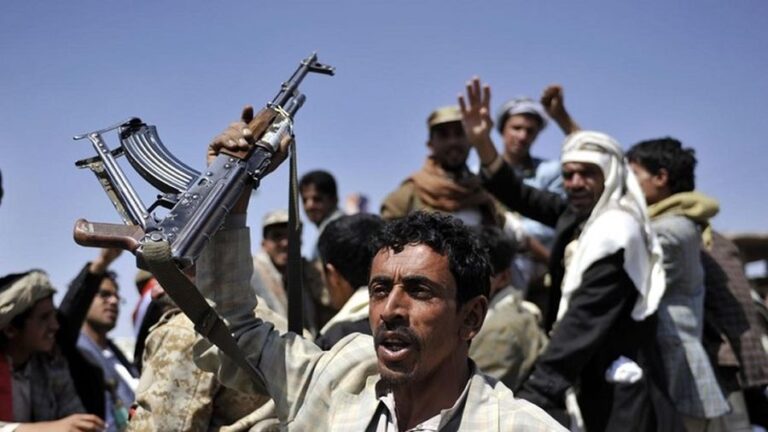Strange Twists in the Hariri Mystery
The strange case of Lebanon’s Prime Minister Saad Hariri and his surprise resignation, delivered in Saudi Arabia, has developed international overtones with rumors about his possible kidnapping by the Saudis and France extending an invitation for him to come to Paris before possibly returning to Lebanon.
Because of concerns that his resignation may have been extracted by the Saudis under duress, the Lebanese government has refused to accept it unless he tenders it in person. In an interview last Sunday, Hariri looked harried and nervous. At one point the camera caught a man holding up some kind of sign behind the interviewer, as if he was trying to direct Hariri’s comments.
I spoke again to Beirut-based political activist and environmentalist Rania Masri on Nov. 13 about the Hariri case. Masri is an Arab-American academic, an expert in the workings of the Lebanese government, and has been doing regular translations of Hezbollah leader Hassan Nasrallah on Facebook.
Dennis Bernstein: Let’s start with your response to the latest developments. The prime minister says he would like to return to Lebanon.
Rania Masri: Yesterday there was an interview conducted in Saudi Arabia. Saudi individuals were present during the interview. When you look at what Hariri actually said at this interview, it appears that the Saudi plan so far has not been successful. We have Hariri saying he wants to return to Lebanon, he is not sure when that will be, and that he will proceed with the resignation when he is here unless things change. So he left the door open for possibly not resigning.
As to why this is happening, you have to look at the events of the last two weeks. Saturday, [November 4], Saad Hariri read a statement that many of us believe was written by the Saudis. The Lebanese president and speaker of the house reject that statement of resignation because it was given while he was abroad. There is an almost total consensus that Hariri has been held captive since Friday.
During this time, it has become very apparent that Saudi Arabia has been in discussions with the US and Israeli governments and has been encouraging the Israeli government to attack Lebanon. The Lebanese president believes that he has gotten word that the Saudis and the Israelis are actually discussing something akin to the 1982 invasion of Lebanon. We are not talking about a war such as what occurred in 2006 but the possibility of an invasion like the one that took place in 1982.
So the political rhetoric has been escalated by the Saudis. They have basically declared war on Lebanon. The Saudi plan was to threaten Lebanon with military destruction and hope that the Lebanese would rise up against Hezbollah, leading to a civil war. That plan has completely failed.
Dennis Bernstein: What has been Hezbollah’s response to these extraordinary developments?
Rania Masri: [Secretary General of Hezbollah] Hassan Nasrallah gave two talks this week concerning the resignation and the need for national unity. In the second talk he spoke to the contents of the resignation letter and responded to these Saudi threats. Nasrallah believes that Saudi Arabia has asked Israel to attack Lebanon and is willing to support this effort with millions of dollars. We know from statements from the Saudi ministries that the Saudi government has declared war on all of Lebanon, not just Hezbollah.
Hezbollah condemns Saudi intervention in Lebanon. They consider it an insult that the Lebanese prime minister is being held against his will and they call for his return to Lebanon. If he wants to resign, he should do so from the presidential palace. Hezbollah considers the declared resignation to be unconstitutional, illegal and illegitimate, because it was not voluntary.
Nasrallah has continued to call for de-escalation. He points out that Saudi Arabia has seen all of its actions in the region fail–whether it be in Yemen, in Bahrain, in Syria, or in Iraq. Nasrallah believes that, as a result of this, Saudi Arabia is now venting its anger against Lebanon. He also points out that if Saudi Arabia really wants to, it can find ways to punish Hezbollah directly instead of attacking the entire country.
Dennis Bernstein: What role do you see the United States playing here?
Rania Masri: I have to say that I don’t know what the US position is. The Saudis recognize that they have not achieved the level of support they would like. It is not really clear what the next step will be by the United States. What is clear is that the Israeli press is not enthusiastic about launching a war against Lebanon to fulfill Saudi aims.
Dennis Bernstein: Is all of this driven by what appears to be the profound failure of the Saudis in Syria?
Rania Masri: There are several issues at play. Historically, the Saudi government has always sought to create enemies, very much in the way the US government has. The de facto ruler in the country, Mohammed bin Salman, has proven himself to be a strategic failure. In Syria all they have managed to do is cause massive death and destruction through their support of ISIS and through their support for the destruction of Damascus and for regime change there.
We also know that there has been strong collaboration of Israel during the process. When we look at the military record of Saudi Arabia in Yemen, in Iraq, in Syria, we know that they are capable of great destruction. But they are not capable of transformation and change. I believe that this is an attempt on the part of the Saudis to vent their frustration and anger at numerous political failures and to achieve what has long been both a Saudi and Israeli goal, which is the destruction of the resistance movement in Lebanon.
Dennis Bernstein: I understand that the Saudi government has asked all of its citizens to leave Lebanon. What are your worst fears at this point?
Rania Masri: Yes, the Saudi and the Bahraini and the Kuwaiti governments have asked their citizens to leave the country. We know that they have directly intervened to force our prime minister to resign and to impose a new prime minister on Lebanon. This they have failed to do. They are also working to pressure the Gulf states and other countries to sanction Lebanon.
And there is open talk of a Saudi/Israeli attack on Lebanon. Personally, I don’t think that is likely. There are other options. They could instigate terrorist acts in the country, as they did in Syria. But the stronger and more unified the country and the leadership is, the harder it will be for the Saudi government to cause disunity and civil tension.
Dennis Bernstein: Are people following all of this closely in Lebanon?
Rania Masri: We have gone through so many wars and attacks over the past twenty years that we suffer from a kind of fatigue. However, we have regular conversations among friends as to whether there will be another war and, if so, what it will look like. At the same time, many people in the country feel strengthened by the military prowess and the resolve of Hezbollah. Many feel that, if we did not have Hezbollah, the likelihood of an Israeli attack would be much higher.
It is really critical for people in the United States to understand that the Trump administration and the American Congress has continued to support this apartheid regime in Israel which has consistently issued threats against Lebanon. The US government has continued to strengthen its relationship with the Saudi Arabian government despite the ongoing war crimes the Saudis have been committing in Yemen. Regardless of what happens in Lebanon, it is necessary for the US government to reevaluate its ties with the Saudi Arabian government or, at the very least, to stop the massive arm sales.
By Dennis J Bernstein
Source: Consortium News


